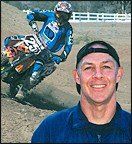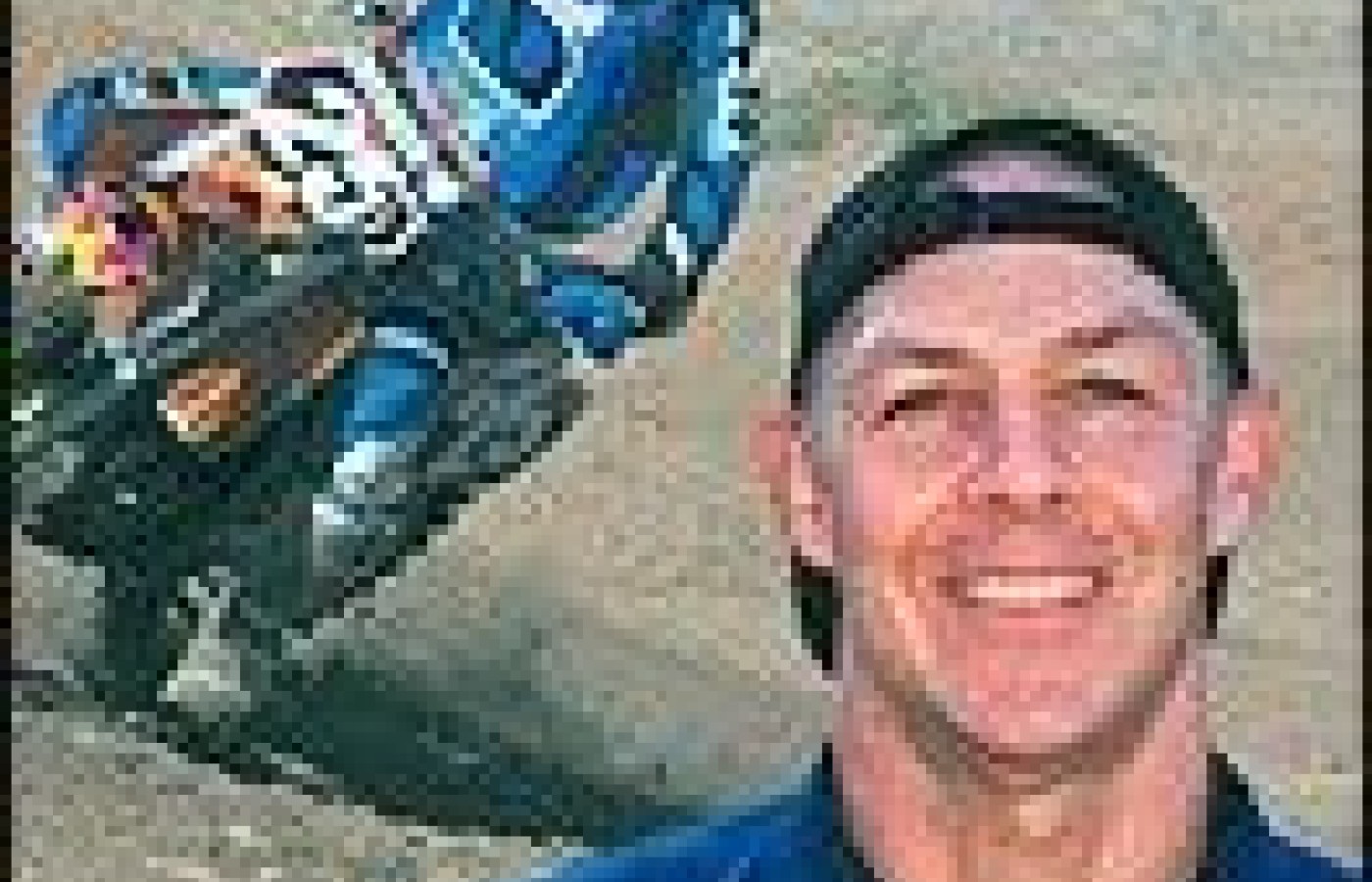New York's highest court of appeals has held that no-fault insurers cannot deny no-fault benefits where they unilaterally determine that a provider has committed misconduct based upon alleged fraudulent conduct. The Court held that this authority belongs solely to state regulators, specifically New York's Board of Regents, which oversees professional licensing and discipline. This follows a similar recent ruling in Florida reported in this publication.
Chiropractic and Motocross: A Winning Combination
When we last interviewed Jeffrey Spencer, MS, DC, CCSP, he had just returned from the 2003 Tour de France, where he played an integral role in helping Lance Armstrong win the event for a fifth consecutive time. In addition to providing care for Armstrong, Dr. Spencer treated several other members of the United States Postal Service Pro Cycling Team before, during and after each stage of the race, combining his skills as a chiropractor with those learned from several years as a competitive cyclist himself to provide the best care possible. (See "Taking Chiropractic on Tour." Dynamic Chiropractic, Oct. 6, 2003.)

Since then, Dr. Spencer has turned his sights and chiropractic expertise on another two-wheeled sport, one in which the bikes are powered by motors instead of muscles: motocross. Recently, we caught up with Dr. Spencer at a practice course in Southern California's Temecula Valley to talk about chiropractic's role in keeping motocross riders fit for competition. While there, we also interviewed Nathan Ramsey, winner of multiple motocross and supercross events - and one of Dr. Spencer's most devoted patients.
Dynamic Chiropractic (DC): Thanks for meeting with us, Dr. Spencer. To begin, what exactly are the motocross riders doing at this practice course?
Jeffrey Spencer (JS): In a typical session like this, several things are accomplished, including developing specific conditioning for racing, bike development, and working on technical skills.
DC: Why are you at this particular practice session?
JS: I'm here because I developed Nathan's conditioning and training program. I'm responsible for determining how many laps he needs to ride and how many times he needs to be out on the track to develop his conditioning. We're also here to deal with injury prevention measures such as adjusting, lasering and taping, and many other things that are required to make sure [Nathan] rides safely and gets the most out of his training sessions. It's also important to develop a strategic plan to be able to move forward with [Nathan] putting in his best effort throughout the season and throughout his career.
DC: Do you attend many of Nathan's competitions?
JS: Yes. I attend every one of Nathan's races, as well as Chad Reed's races.
DC: Do most riders have doctors of chiropractic that they work with?
JS: Almost every rider does see a chiropractor on a regular basis, and many of them actually have chiropractors that will go to the races with them throughout the U.S. and internationally.
DC: Are there "team chiropractors" yet, or is that still to come?
JS: Well, I believe we're on the threshold of that. The sport is evolving and going so quickly that the implementation of many health care professionals is now becoming almost a mandatory component. One of the benefits of motocross is that it doesn't have bias. This sport embraces chiropractic as one of the most important elements in the prevention and treatment of athletic injuries, and in maintaining an athlete's health and the length of his or her career.
DC: Nathan, what kind of conditioning, strength and endurance does it take to do motocross?
Nathan Ramsey (NR): Well, a lot of people come to me and say, "Why would you have to be in shape? [The bike] has a motor on it!" But, that's pretty far from the truth. It's a really different dynamic because you can't focus only on cardiovascular fitness, and you can't be just some musclehead, because you have to stay loose and fluid.
You really have to structure your workout program and work a real fine line, and [have] a good balance. It's cardio, but not too much cardio. You have to spend time doing weights, but not too much time. You have to spend a lot of time on the motorcycle, which is obviously the most important thing. Everything else supplements your time on the motorcycle. Even when I'm trying to come back from an injury, I'm working out and just trying to be ready for when I can get back on the bike.
DC: What does Dr. Spencer bring to the table as far as your abilities and allowing you to excel?
NR: Jeff, to me, is amazing - how he can look at an individual and set a program up with just the wisdom and knowledge that he has from experience and education. He sets up a program that's structured for the specific individual athlete, and he'll talk with a client about every bit of the training, because he wants to get a response back about how they feel when they complete a certain workout or a certain number of laps around the track. I've learned so much from him about working out and being in shape, and being prepared mentally as well as physically. I've also learned a lot from watching the way he approaches life. Chiropractic works in your everyday life. I've gained a lot of knowledge from him just about everyday living, in addition to working out and being a professional athlete.
DC: What does Dr. Spencer normally provide for you on the day of a competition?
NR: Well, as long as I do my homework during the week, [he] shouldn't have a whole lot to do. He usually makes sure my body's aligned, tests my muscle groups, and makes sure everything is functioning properly. We call it the "tuneup." We make sure everything is balanced and working well. And in the instance that something goes wrong in practice or I have an injury, he's got everything he needs, from lasers to tape and every other thing that you could ever imagine. He's got it all covered.
When I was younger, I used to think, "When I get done with racing, I'm going to be hurting. I'll have arthritis, and I'm gonna be just a miserable old man." Working with Jeff, I feel better now than I did six or seven years ago, and I really don't have that fear anymore, because I take such good care of my body with his advice and wisdom. When I retire, I'll probably be doing better than anyone else at my age.
DC: What about the other motocross riders? Are they utilizing chiropractic as well?
NR: Absolutely. You definitely have guys who do it more often than others, but I can't think of any riders who do not use chiropractic at all. Everyone believes that it works; it's proven.
I have a brother who's three years older than me; he grew up racing, too. We went to the local chiropractor, and when my brother decided he was going to hang it up racing, he wanted to be a chiropractor, because he realized how much chiropractic helped him. So, he went to Life Chiropractic College and now he's a chiropractor in Chattanooga, Tennessee. It's amazing how chiropractic can help your overall well-being as well as your athletic side.
DC: Is there such a thing as a "team chiropractor," or a chiropractor who would represent a particular manufacturer?
NR: Definitely. Over the years there have been guys who've been connected with a team. Jeff was connected with a team in the '80s and did a great job, but he also had a lot of other things going, and they moved him in a different direction at the time with the tour. But, he came back to a more individualized practice.
When you're with a manufacturer, you're kind of restricted to their rules. Someone who has the knowledge that Jeff has, being with a couple of riders he really likes and believes in, is probably much more fulfilling for him.
DC: What advice would you give to young riders regarding taking care of their bodies and seeing a chiropractor?
NR: Well, you have to take care of yourself! Motocross offers such a short window for a career, and if you want it to last, then you have to start taking care of yourself early. A lot of people think that you turn yourself into whatever you want to be, but there's a lot more thought and science in the sport nowadays. So, stick with your local chiropractor, because injury prevention as well as rehabilitation is where it's all at. If you can stop it from happening or fix the problem quickly, then you're going to get back in the game sooner.
DC: Dr. Spencer, what advice would you give to doctors of chiropractic who are interested in getting more involved with motocross or supercross riders, or athletes in similar sports?
JS: What's most important is that you become [involved athletically] in the sports that you're interested in. That way, you'll understand the subtleties in a way that someone who doesn't participate will never understand. Also, you need to become involved in a variety of different club activities in the sport that you're involved in, and read publications and become a student of that sport. Talk to people, go to meetings and competitions, and develop an intimacy there. Don't be afraid to let people know what you do. Always be a student of your discipline. Continue to learn everything you can about the human body.
In terms of athletics, you need to know something about general conditioning; you need to be a master of physical chiropractic; you need to be a great adjustor; you need to know your modalities; you need to know nutrition in terms of how to get the body well and keep it well; you have to be able to peer into the hidden world of the body and see things that are silently sabotaging performances, and then know how to discharge those out of the equation so the athlete gets to peak levels and stays there; and you need to take a proactive role in having a really strong and solid wellness approach to what you do. You need to be able to talk to athletes as people, and to bring a vision to the athlete that nobody else does. Where it's easy to succeed in chiropractic care is when you're offering something that's complete and different from what everyone else is providing.
DC: Is there anything else you'd like to add as far as your involvement with Nathan's career, or with sports in general?
JS: Any time we as chiropractors interface with our patients and our clients, we're really affecting their destiny. All of the choices we make that enhance their physical capacity to be able to make their dreams real; what we do absolutely helps them create the best possible life experiences. So, our experience is profound, and we do something that other professions don't, in that we touch people, both physically and emotionally. We have the ability to give people the physical assets to be able to embrace a life unparalleled.
DC: Thank you.
Staff editors Julie Engebretson and Michael Devitt contributed to this article.



